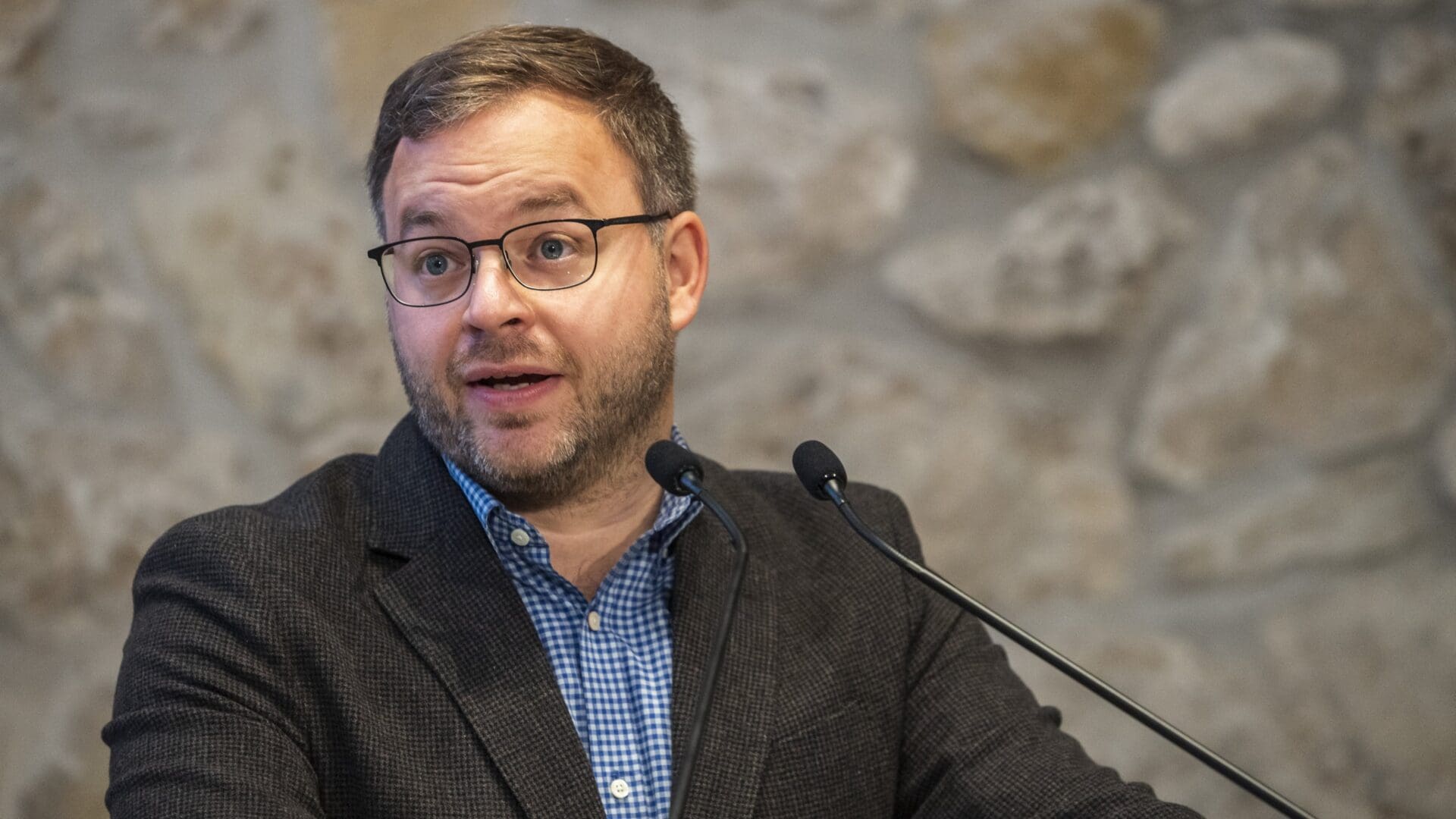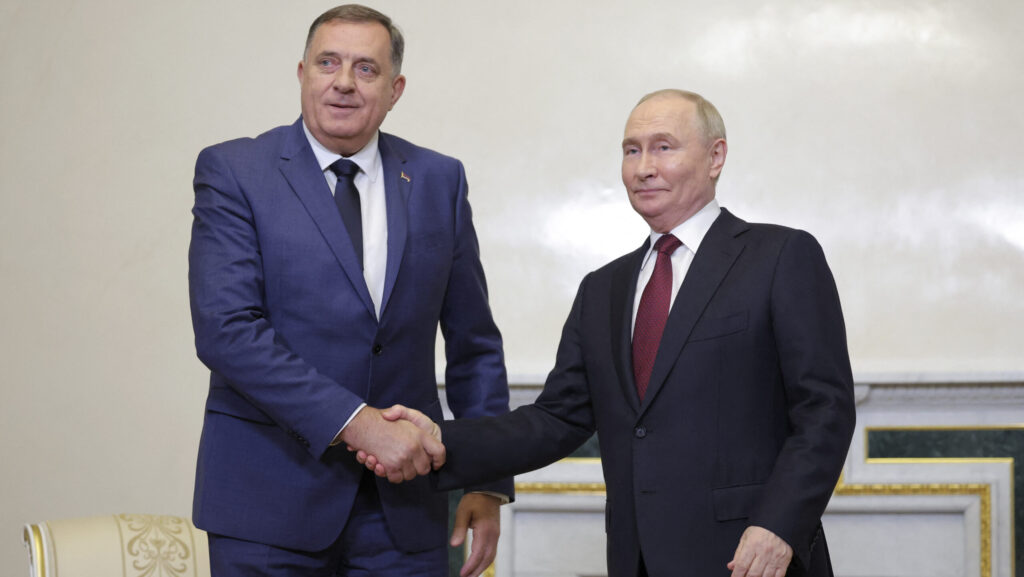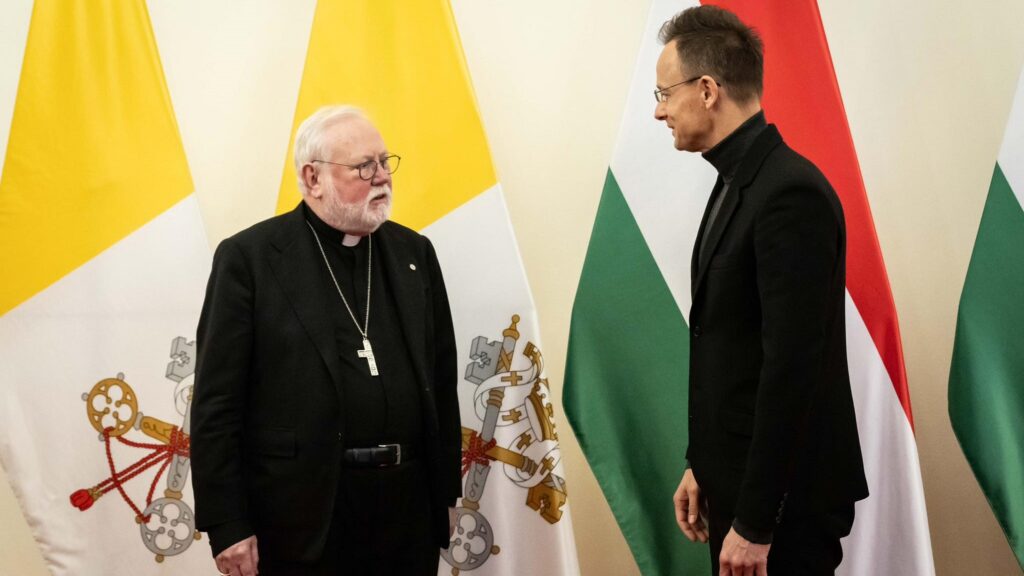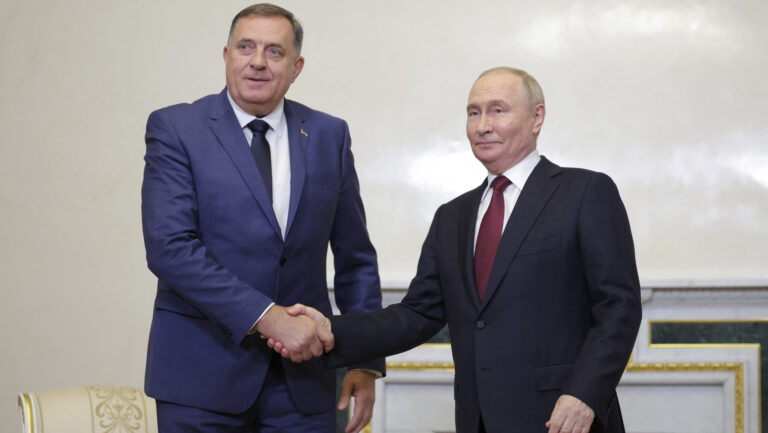Prime Minister Viktor Orbán met with President Vladimir Putin of Russia yesterday at the forum organized for the 10th anniversary of China’s Belt and Road Initiative on Tuesday, 17 October in Beijing, China. This was the first time the two statesmen met since Russia’s invasion of Ukraine on 24 February 2022, having last held in-person talks on 1 February 2022 in Moscow, Russia.
Needless to say, the recent meeting and the subsequent photograph of a handshake prompted some in the Western media and governments to share their misgivings.
Among those was US Ambassador to Hungary David Pressman, who is known to be a vocal critic of the current Hungarian government. This time, he tweeted the aforementioned photo of PM Orbán and President Putin, with a caption condemning the meeting.
Ambassador David Pressman on Twitter: “Hungary’s leader chooses to stand with a man whose forces are responsible for crimes against humanity in Ukraine, and alone among our Allies. While Russia strikes Ukrainian civilians, Hungary pleads for business deals. pic.twitter.com/Rsjwdm1oUu / Twitter”
Hungary’s leader chooses to stand with a man whose forces are responsible for crimes against humanity in Ukraine, and alone among our Allies. While Russia strikes Ukrainian civilians, Hungary pleads for business deals. pic.twitter.com/Rsjwdm1oUu
What the Ambassador describes in his X (Twitter) post as ‘pleading for business deals’ likely refers to PM Orbán’s discussions of gas and oil transports, for which Hungary still mainly relies on Russia for supplies; as well as cooperation in the nuclear sector, the main element of which is the expansion of the nuclear power plant in Paks, Hungary—the Russian state-owned company Rosatom was contracted for the project many years before the outbreak of the war.
Protecting the country’s economic interests even during the Russo-Ukrainian conflict is not exclusive to Hungary, however—as Balázs Orbán, the Hungarian Prime Minister’s political director pointed out in a reply to the Ambassador’s accusatory tweet, noting that the United States has not only not stopped purchasing nuclear fuel from Russia, but is actually buying more now than before the Russo-Ukrainian war.
Balázs Orbán on Twitter: “If the question is who’s doing business with the Russians, the Americans should turn down the volume. They are buying more than twice as much nuclear fuel alone as they used to, and we have a whole list of them.We are fed up with @USAmbHungary’s hypocrisy! https://t.co/rk3fRZFzB5 / Twitter”
If the question is who’s doing business with the Russians, the Americans should turn down the volume. They are buying more than twice as much nuclear fuel alone as they used to, and we have a whole list of them.We are fed up with @USAmbHungary’s hypocrisy! https://t.co/rk3fRZFzB5
It is true: Russia continues to be the world’s largest exporter of enriched uranium, the key element of nuclear-reactor fuel, even after the start of the Ukrainian war and the consequent sanctions. Multiple major international news outlets, such as The Associated Press, The Washington Post, or Bloomberg have covered this topic. According to Bloomberg’s numbers from August 2023,
about 24 per cent of enriched uranium used by American energy companies still comes from Russia.
In fact, according to BNE Intellnews’ report, Russian uranium exports to the US more than doubled in the first six months of 2023 compared to the same period in 2022.
Russia remains a major supplier of nuclear fuel ingredients to other European nations as well, a fact that was referenced by President Putin himself during his meeting with PM Orbán. He said:
‘Despite the fact that in today’s geopolitical conditions the opportunities for maintaining contacts and developing relations are very limited, nevertheless, it can only cause satisfaction that our relations with many European countries are maintained and developed. One of these countries is Hungary,’ as quoted by the Reuters news agency.
Viktor Orbán was not even the first European head of state or government to meet with the President of the Russian Federation since the invasion of Ukraine. It was Chancellor Karl Nehammer of Austria, who visited him in Moscow in April 2022, only a little more than a month after the invasion. However, he did refrain from taking part in a photo op with President Putin, unlike PM Orbán.
Related articles:








